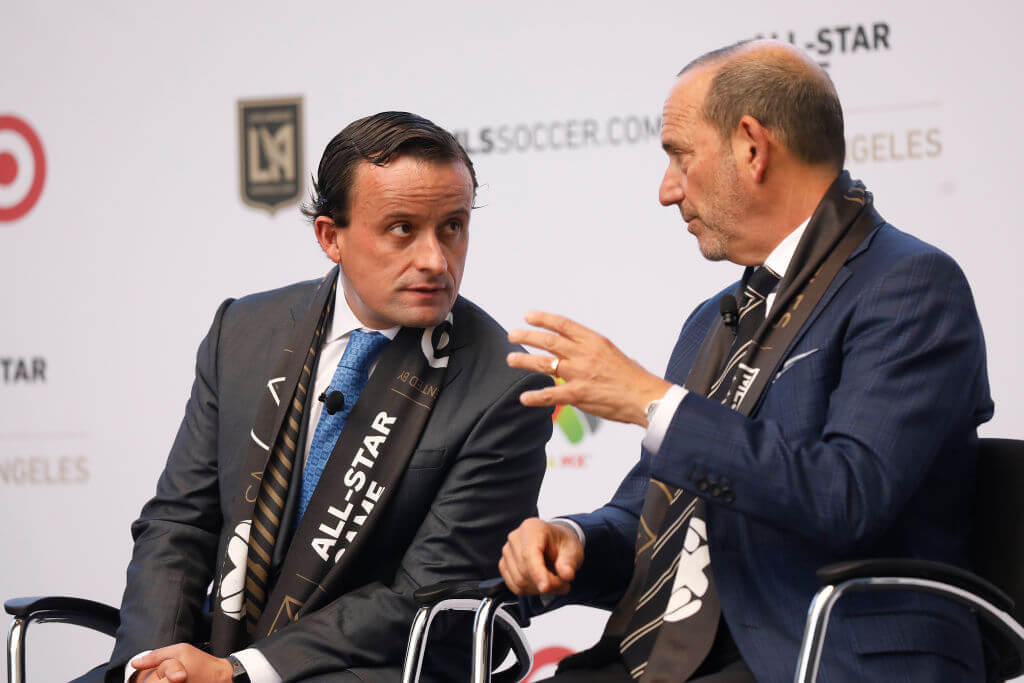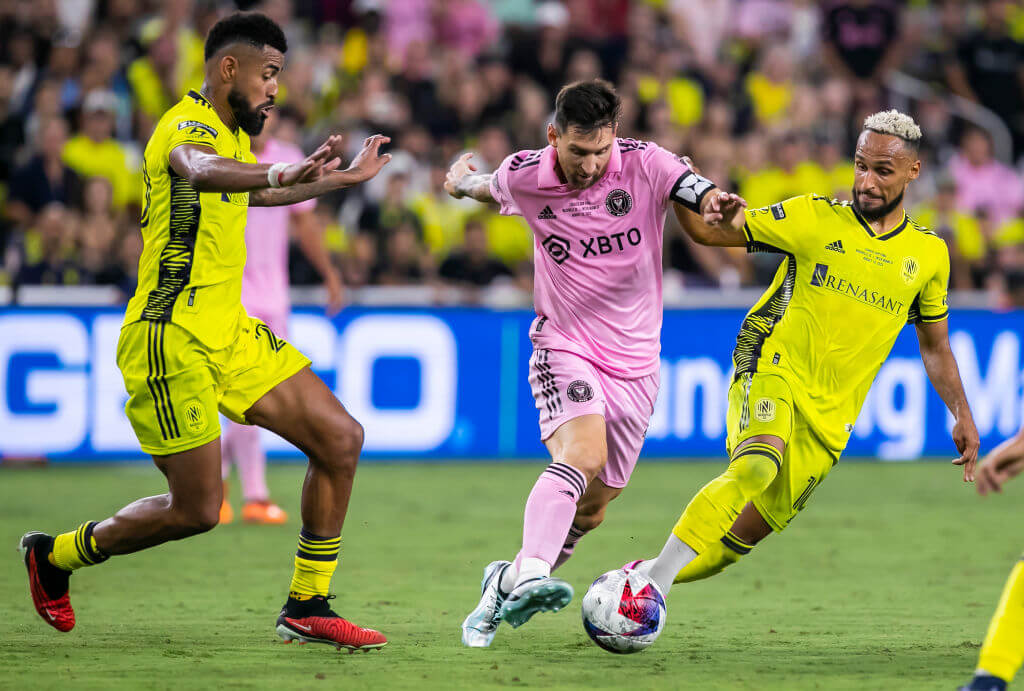On Friday, Liga MX commissioner president Juan Carlos Rodriguez resigned following a meeting of league owners as they weighed a potential $1.25billion investment from Apollo Global Management and NFL owners.
The resignation, from its sudden and dramatic nature to its timing — just two days before the end of the Apertura tournament — sent shockwaves through Mexican soccer.
The deal with asset management giant Apollo, which would have injected a significant influx of cash into Liga MX, was expected to require centralizing the league’s television and commercial rights and operations. Sportico reported that these efforts included the creation of ‘La Comercializadora’, an entity to house sponsorships, media partnerships and other commercial tie-ups.
However, Liga MX owners did not vote on the deal on Friday, prompting Rodriguez to tender his resignation due to what the Mexican Football Federation (FMF) termed “personal reasons.”
Here, The Athletic breaks down what happened, why it matters, and what may come next.
Who is Juan Carlos Rodriguez?
Rodriguez was elected president of the FMF in May 2023, taking over after the final two tumultuous years under his predecessor Yon de Luisa.
Previously the president of sports enterprises at Grupo Televisa, with an influential hand in shaping the network’s football coverage in Mexico and the United States, Rodriguez moved to the commissioner role in June 2023 after an organizational restructuring.
Who has taken his place and what does that change for the clubs and league?
Liga MX president Mikel Arriola has been named interim commissioner and will put together the group of 10 owners to continue working with Apollo. Arriola has been with Liga MX since 2020.
Rodriguez’s TV background and knowledge of both markets was seen as a positive, particularly in regards to closing deals like the Apollo one.
“We know that we are the kings of a very unique hill which is Mexican soccer in the U.S.,” Rodriguez told The Athletic in 2021. “That means Liga MX, the Mexican national team, and any (Liga MX) games that are played against MLS clubs.

“Liga MX is becoming more relevant (in the U.S.) due to the success of MLS. When we bought Euro (2020) and the UEFA Champions League (rights), we knew that we needed to increase the size of our footprint outside of Mexican Americans. That investment has always paid off.”
Whether there is still a deal to be done remains to be seen.
What is the Apollo deal and is it still alive?
The idea of the deal was for a significant investment in Liga MX’s commercial and media rights over a set period of time, and an up-front cash investment that would allow Mexican teams to spend more on the on-field product and infrastructure, making the league more competitive and attractive ahead of the 2026 World Cup and, eventually, in negotiations for a media deal.
Liga MX has long split up its television rights, with the biggest clubs reaping huge deals. Chivas, for example, has deals with Telemundo and Amazon. Club America has a deal with Televisa (its owner), which owns Univision.
Bringing all teams together in one deal could have made the media rights deal much more significant, especially in the U.S. market, where Liga MX remains the most popular soccer league on TV.
While the deal did not come to a vote last Friday, it does not mean it is dead. A group of 10 owners is set to “continue negotiations with the investment fund, with a special emphasis on strengthening the corporate governance of the institution, and move forward with the all-important transformation project for our soccer,” according to the league’s statement.
Who are the clubs who were unwilling to sign the deal and why?
Reports have indicated different clubs balked at agreeing to the deal last week. That includes Grupo Pachuca, which owns Pachuca and Leon, as well as Monterrey and Tigres, among other clubs. As many as two-thirds of the teams may not have been ready to bring the deal to a vote.
The teams wanted to negotiate further on how rights were grouped together and controlled, as well as what was included in the new commercial group — including media rights, tickets, league-wide sponsorships and more.
A source with knowledge of the situation, who spoke on condition of anonymity due to the sensitivity of negotiations, told The Athletic there was still a strong belief within Liga MX that a deal would eventually get over the line but the teams are pushing for an agreement that will see them maintain control of certain items, in particular ticketing, which is a crucial revenue stream.
What are the wider implications for the Club World Cup, MLS and the 2026 World Cup?
There aren’t necessarily huge implications for the Club World Cup or World Cup, but it could contribute to a changing North American soccer landscape.
A more commercialized Liga MX would increase competition for MLS, which has created a Leagues Cup partnership with its neighbor to the south, with an eye toward siphoning off some of Liga MX’s fans to their own domestic product.
With the potential for a settlement in the Relevent lawsuit that could allow Liga MX teams to play regular season games in the U.S., it would lead to questions over what the Leagues Cup partnership looks like over time if Liga MX signs a major American media rights deal and can play official matches in American stadiums.

Liga MX might also start to attract new investors, including from the U.S., and also potentially be more competitive in the global transfer market. That would have an impact on MLS, which continues to look for footholds for its own growth in the American sports marketplace and in global soccer.
MLS commissioner Don Garber said he wasn’t concerned about the Apollo-Liga MX deal, however, noting that MLS previously did a deal with private equity firm Providence in 2012 before repurchasing that stake in 2017.
“Liga MX has been on air in our country since way before Major League Soccer,” Garber said at a press conference earlier this month. “They just went about it differently. So I don’t know that much is really going to change. We have a great partnership with Juan Carlos Rodriguez. We helped them with the organization of their new structure, because it mirrors very much what MLS is all about, particularly when we owned the rights for U.S. Soccer.
“I think it’s going to lead to more cooperation between MLS and Liga MX, as opposed to less. So, not at all concerned about it. I’m optimistic, and I think it’s a positive step for the sport.”
(Top photo: Hector Vivas / Getty Images)





